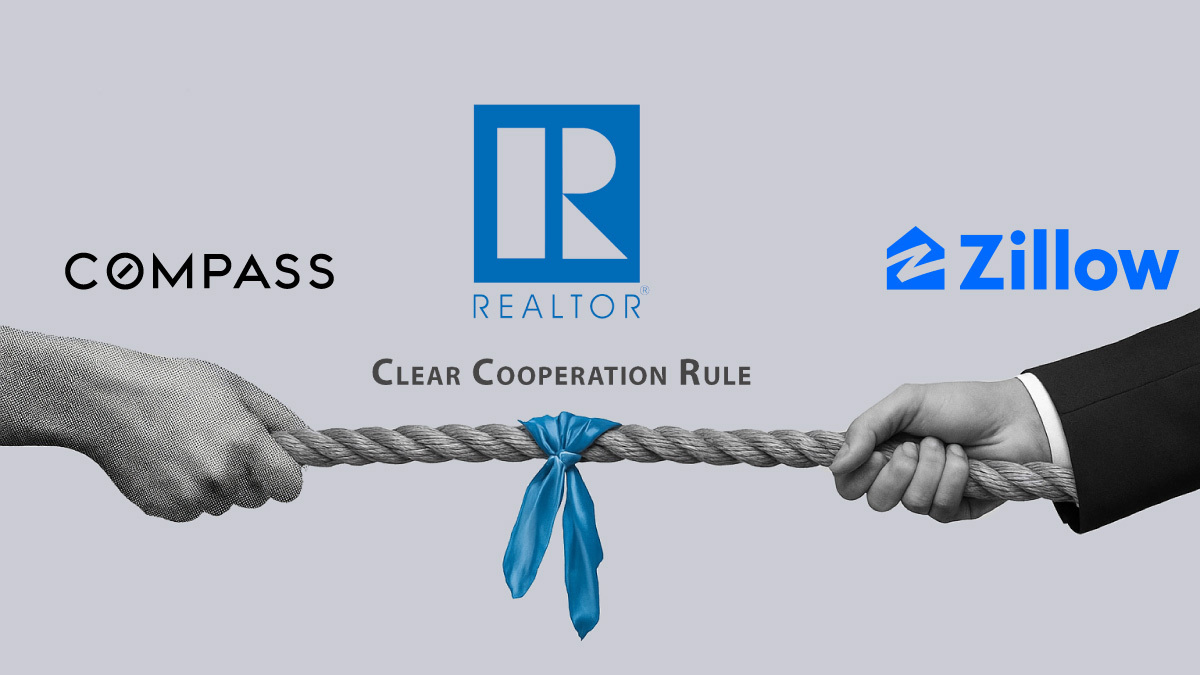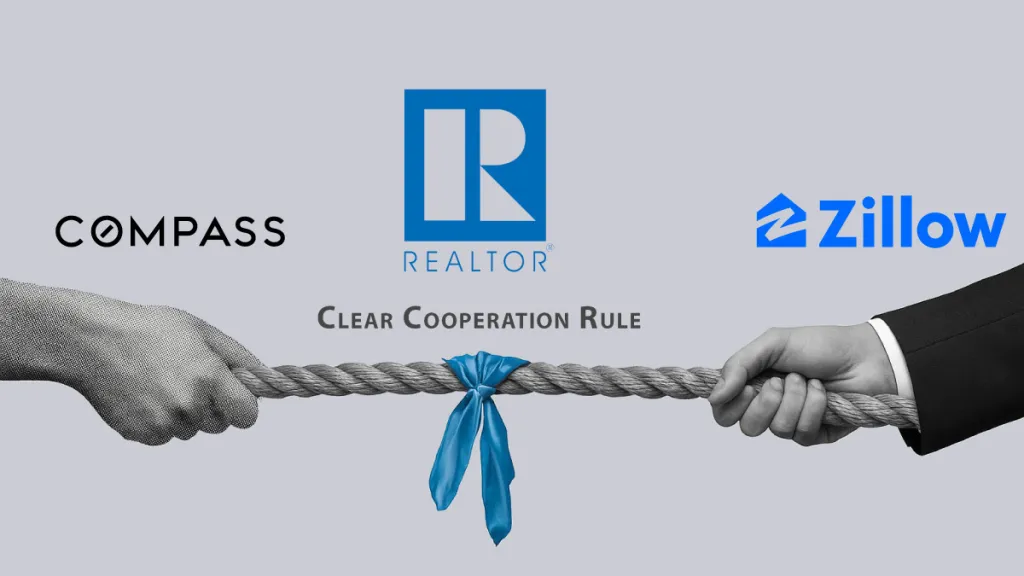A major legal battle is brewing in the real estate industry as Compass, the nation’s largest real estate brokerage by volume, has filed an antitrust lawsuit against Zillow over its policy regarding private listings. The lawsuit, filed Monday in New York, puts a spotlight on industry practices that have long been debated among real estate professionals and consumers alike.
The dispute centers around how and when properties should be marketed publicly, with significant implications for sellers, buyers, and the competitive landscape of real estate technology platforms. As the June 30 implementation date for Zillow’s new policy approaches, tensions are escalating between these industry giants.

- Compass’s legal battle with Zillow over new private listing policies. Source: @jameskleimann – housingwire.com
Compass has accused Zillow of violating federal antitrust laws by implementing a policy that would permanently ban any listing that isn’t submitted to a Multiple Listing Service (MLS) within one business day of being publicly marketed. This policy directly challenges Compass’s innovative marketing plan, which has become a cornerstone of their business strategy and distinguishes them in the marketplace.
The approach begins with an “office exclusive” where properties are marketed in-house to Compass agents or privately shared with agents at other firms. The listing then transitions to a “coming soon” status on Compass’s website before finally becoming active on the MLS if it hasn’t sold during the previous phases. According to Compass, this graduated approach benefits sellers by allowing them to test pricing and marketing strategies without accumulating potentially damaging “days on market” statistics or price reduction history that could weaken their negotiating position.

- Compass uses a three-phase marketing plan for their listings. Source: @jameskleimann – housingwire.com
Zillow defends its new policy as simply enforcing the National Association of Realtors’ Clear Cooperation Policy, which was designed to ensure market transparency and equal access to listing information. The policy requires properties to be submitted to an MLS within one business day after being publicly marketed. Interestingly, while Redfin has taken a similar position to Zillow regarding listing policies, Compass named them as a co-conspirator in the lawsuit but not as a defendant.
Compass claims in its lawsuit that Zillow’s actions are designed “to protect its market dominance” and represent retaliation “against competitive threats by enacting an exclusionary policy.” With approximately 7,000 private exclusive listings currently in its portfolio, Compass has much at stake in this legal battle. The company’s data indicates that 94% of listings that begin as private exclusives eventually make their way to the MLS, suggesting their approach delays rather than prevents broad market exposure.

- The impact of MLS rules on real estate industry stakeholders. Source: Red Rock Title & Settlements, LLC – rr-title.com
The lawsuit highlights fundamental tensions in the real estate industry regarding transparency, competition, and the changing role of technology platforms. On one side, Zillow and its supporters argue that all listings should quickly become available on the MLS to create a more transparent marketplace where all buyers have equal access to information about available properties. This position aligns with traditional industry values of cooperation and shared access to listing data.
Compass, meanwhile, contends that its approach provides strategic advantages for sellers while still ultimately contributing to market transparency. By allowing a more controlled rollout of listing information, Compass argues that sellers can maximize their property’s value and avoid potential stigmatization from extended market time. Critics, however, suggest that Compass’s approach may be more about increasing opportunities for the brokerage to represent both sides of transactions, which can significantly increase profits.
Industry observers are closely watching this case for its potential to reshape how real estate listings are handled nationwide. The outcome could either reinforce the movement toward immediate and universal listing transparency or create room for more nuanced marketing strategies that allow for private testing periods. At stake is not just the business models of these companies but also fundamental questions about how best to serve seller interests while maintaining a fair marketplace.
Real estate professionals remain divided on the issue. Many agents at traditional brokerages support Zillow’s position, arguing that private listings create an uneven playing field that ultimately harms consumers by limiting exposure. Supporters of Compass’s approach counter that flexibility in marketing strategy benefits sellers, particularly in luxury markets where privacy concerns and strategic positioning can significantly impact sale outcomes. As the June 30 deadline approaches, the industry awaits both the court’s initial rulings and potential market disruption.

